Can rabbits eat broccoli: Exploring Safe and Nutritious food for Pet Rabbits

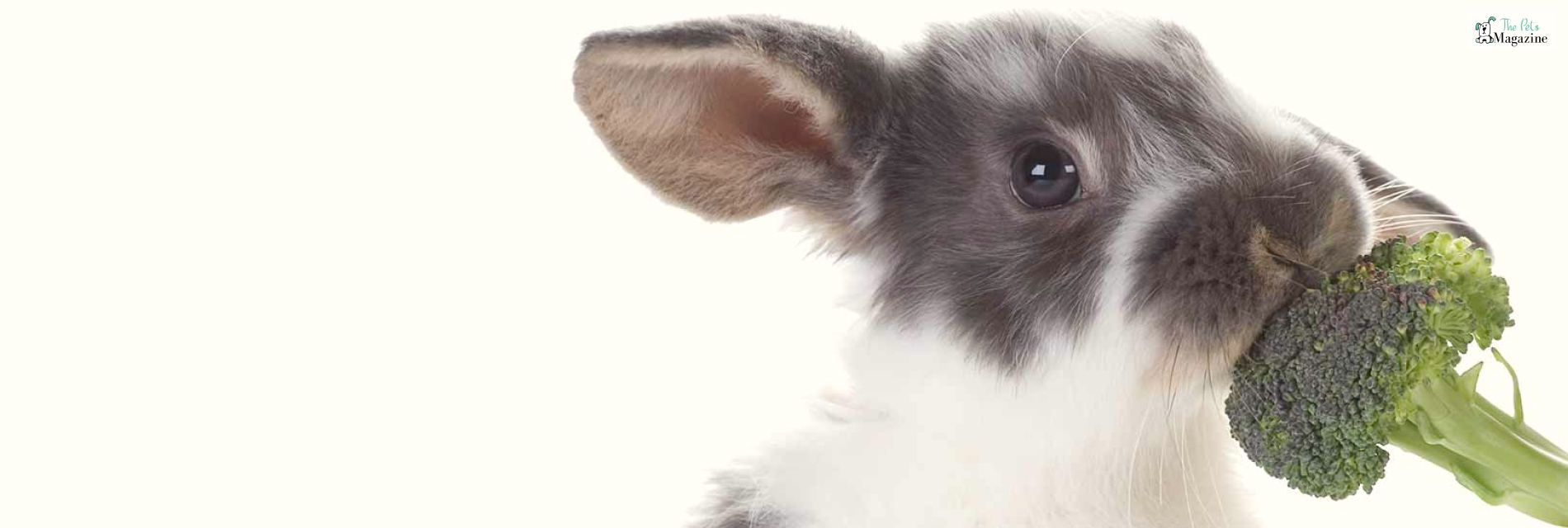
As a new rabbit owner, understanding your fluffy friend’s dietary needs and feeding your pet a proper diet is one of the most important things you can do to keep them happy and healthy. But if you are thinking of grabbing a bag of carrots or lettuce for your pet bunny, then stop! While rabbits enjoy chewing on carrots, it’s not the primary source of nutrition for them.
In fact, rabbits have some unique nutritional requirements because their digestive system is very complex and sensitive. They require a diet rich in fiber to maintain good dental health and digestive health.
Thus feeding them the wrong foods or low-quality food can lead to digestive problems, poor dental health, bloating, and other health issues. In this article, we have explained in detail what a proper rabbit diet should consist of and what type of food should be avoided. So to know ‘can rabbits eat broccoli’ and what other vegetables are good for your new pet bunny, read on!
Understanding Your Pet Rabbit’s Dietary Needs🐇
Rabbits in the wild generally feed on fibrous vegetation such as plant leaves, dry and fresh grass, seeds, sprouts, and sometimes tree bark and soft twigs. Similarly, you should feed your pet rabbit a fiber-rich diet consisting primarily of high-quality grass hay.
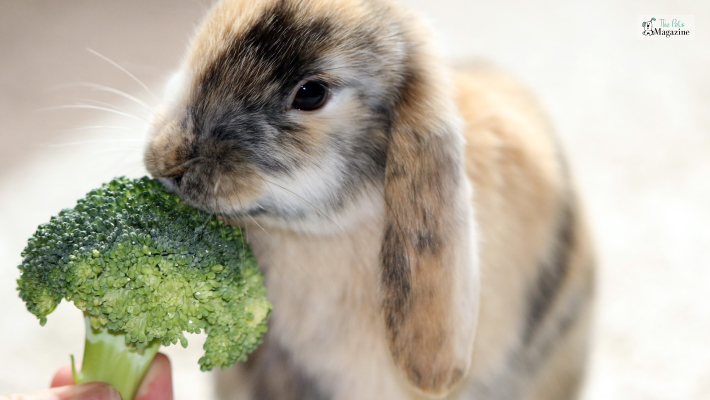
In addition to hay, provide your rabbit with leafy green veggies like romaine lettuce, spinach, and kale 2-3 times a week. Read on to know what you can feed your pet rabbit and can rabbits eat broccoli and cauliflower.
Hay: The Foundation of a Rabbit’s Diet
High-quality grass hay should make up the majority of your rabbit’s diet. It is an absolutely essential component of a rabbit’s diet for several reasons:
Digestive Health:
Rabbits have a unique digestive system that requires a high-fiber diet to function properly. Hay is rich in fiber, particularly long-strand fiber, which promotes healthy digestion by aiding the muscles in the digestive system to contract, allowing food to smoothly pass down the digestive tract. By maintaining good gut motility, the fiber helps prevent gastrointestinal stasis and reduces the risk of blockages or hairballs.
Dental Care:
Rabbits have open-rooted teeth, which means that their teeth are growing continuously. Chewing on hay helps them wear down their teeth naturally. The abrasive texture of hay helps prevent dental issues such as malocclusion (misalignment of teeth) and overgrowth, which can cause pain, difficulty eating, and other health problems.
Weight Management:
Hay is low in calories and fat, making it an ideal food for rabbits to maintain a healthy weight. It provides bulk in their diet, helping them feel full and satisfied while consuming fewer calories compared to other foods.
Hydration:
Hay contains a good amount of moisture, contributing to a rabbit’s overall hydration. Although rabbits primarily obtain water from drinking, the moisture content in hay can supplement their water intake and support urinary tract health.
Mental Stimulation:
Hay is not just a food source but also provides environmental enrichment for pet rabbits. It offers opportunities for natural foraging behavior, as rabbits enjoy digging, burrowing, and exploring through the hay, which helps keep them mentally stimulated and prevents boredom.
When feeding hay to rabbits, it’s important to provide high-quality hay, such as timothy hay, orchard grass hay, or meadow hay. Avoid dusty or moldy hay, as it can be harmful to their respiratory system. Additionally, hay should make up the majority of a rabbit’s diet, along with fresh vegetables and a small amount of commercial rabbit pellets.
Fresh Vegetables and Leafy Greens🥬
In addition to hay, you can also feed fresh vegetables and leafy greens to your rabbit. But make sure to only feed in moderation, as too many can lead to obesity or nutritional imbalance. wash all produce thoroughly before giving them to your rabbit.
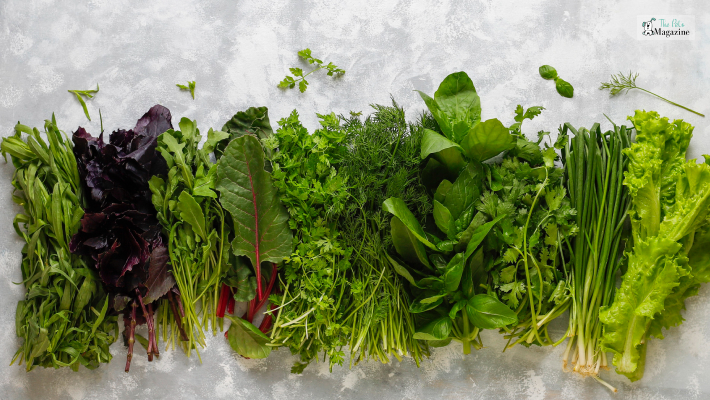
If you want to know is broccoli good for rabbits, then let us tell you – yes rabbits can have dark leafy greens like broccoli leaves. But you may be wondering which parts of broccoli are safe for rabbits to eat and can rabbits eat broccoli stalks. Rabbits can have all parts of a broccoli but they may find it difficult to digest the floret and the thick stem part.
If you want to feed broccoli to your pet bunny, make sure to give the leaves and thinner stems of broccoli. Also make sure that you are feeding raw, not cooked broccoli to your rabbit. Broccoli for rabbits can be a healthy addition to their diet because it contains iron, fiber, potassium, and Vitamins C and K.
Now that you know that rabbits eat broccoli stems, it is natural for you to wonder if you can feed cauliflower to rabbits since they both belong to the cabbage family. Both vegetables are high in fiber and other essential nutrients but cauliflower contains a higher sugar or starch content.
However, you should feed both broccoli and cauliflower in moderation as they can cause a buildup of gas leading to gastrointestinal issues. For this same reason, brussels sprouts and kale should also be fed in moderation.
Now that you have the answer to your question ‘Can rabbits eat broccoli leaves,’ check out this list to get an idea of what vegetables and leafy greens you can add to your rabbit’s daily diet.
Romaine lettuce (in moderation)
This leafy green is low in sodium content and packed with essential nutrients like calcium, potassium, magnesium, phosphorus, and vitamin C. Romain lettuce also contains beta-carotene which converts to Vitamin in the body.
Spring mix
This refers to any combination of tender baby greens which includes Green or Red Leaf Lettuce, Red and Green Chard, Arugula, Tango, Radicchio, Mizuna, Green Leaf Oak, and Red Oak. This mix is rich in nutrients like manganese, folate, Vitamin A, and Vitamin K. It also contains a small amount of protein and fiber.
Arugula
This leafy green vegetable is packed with a lot of essential vitamins and minerals such as folate, zinc, potassium, phosphorus, calcium, magnesium, iron, and Vitamins A, C, and K. In addition to essential vitamins and minerals, arugula also contains fat, carbohydrates, protein, and fiber in small amounts.
Bok Choy
Aside from essential vitamins and minerals like Vitamin C, K, folate, iron, phosphorus, calcium, zinc, and magnesium, Bokchoy also contains a high amount of dietary fiber.
Carrots (limited due to sugar content)
Rabbits love nibbling on carrots because of their taste and texture. However, carrots are high in sugar and carbohydrates. Hence rabbits can only have small quantities of carrots at a time.
Bell peppers
Bell peppers, all known as capsicums are rich in vitamin C. They also contain other vitamins and minerals such as potassium, folate, vitamins K1, E, and A. Bell peppers also have around 92% of water which makes it a suitable snack for rabbits during hot weather. Rabbits can have the yellow and green bell pepper in moderate quantities but make sure to remove the seeds and stems beforehand. Also, avoid feeding red bell peppers as they have a high sugar content.
Radishes (including leaves)
Radishes are members of the mustard family and are rich in vitamins and minerals like magnesium, potassium, calcium, phosphorus, iron, and Vitamins A, B6, and C. Radish leaves also have a high fiber content. Rabbits can eat all parts of a radish but only in small quantities as they have a high carbohydrate content and are acidic.
Celery (including leaves)
Celery is a rich source of vitamins and minerals such as Folate, calcium, potassium, and Vitamins C, K, and A. It also contains fiber and carbohydrates and is low in sodium content. But most importantly, celery contains around 95% of water and can help your pet rabbit to stay hydrated.
See Also: Mini Lop Rabbit: Facts, Lifespan, Behavior & Care
Pellets and Commercial Rabbit Food🐇
Pellets or commercial rabbit food provide nutrients, but too many can lead to obesity, so limit to 1/4 cup per 6 lbs of body weight daily. Too many pellets can lead to obesity and other health issues in rabbits.
Choose a timothy-based pellet with at least 18% fiber and no colorful bits or treats. Only introduce pellets once your rabbit is over 6 months to encourage them to eat plenty of hay.
To keep your rabbit healthy and happy, provide a varied and balanced diet. In addition to a high-quality pelleted feed, offer your bunny different treats and supplements to round out their nutrition.
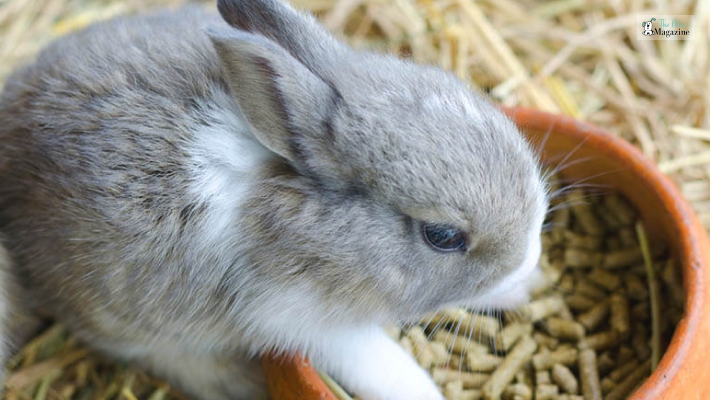
Fruits🍇🍌🍐
Fruit like bananas, berries, and melon can be given as an occasional treat in very limited amounts, no more than 1-2 tbsp 2-3 times a week. Treats high in sugar like yogurt drops or candy should be avoided.
With a varied and balanced diet, your bunny will stay happy, healthy, and hopping! Monitor your rabbits to ensure they maintain a good weight and consult a vet who specializes in treating rabbits if you have any questions.
Food that you should avoid feeding your pet rabbit🥦
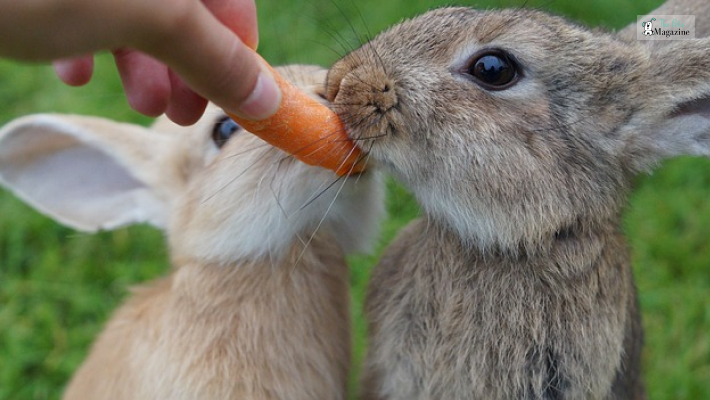
Along with knowing can rabbits eat broccoli, you should also know about the food that you should avoid feeding your rabbit. These are as follows:
Toxic plants
Some plants are poisonous to rabbits and must be avoided. Do not feed your rabbit any part of rhubarb, potato, tomato, or avocado plants. Also avoid giving lily, iris, tulip, azalea, rhododendron, oleander, or yew clippings, as these plants are toxic to rabbits.
Sugary and starchy treats
While carrots and fruits are fine as occasional treats in moderation, too much sugar and starch is unhealthy for rabbits. Avoid giving your rabbit too many carrots, fruit, pasta, rice, and sugary cereal. These foods are low in nutrients and high in calories, which can lead to obesity and digestive issues in rabbits.
Beans, seeds, and nuts
Don’t feed your rabbit beans, seeds, or nuts. These foods are difficult for rabbits to digest and can cause choking, intestinal blockages, and other gastrointestinal problems. Some examples to avoid are beans, sunflower seeds, pumpkin seeds, and peanuts.
Meat and dairy
Rabbits are herbivores, meaning they eat only plants. Do not feed your rabbit any meat, eggs, or dairy products. These animal-based foods do not provide any nutritional value for rabbits and make them sick.
Creating a Balanced Daily Meal Plan for Pet Rabbit
A proper diet is essential for your rabbit’s health and happiness. As a new owner, it’s important to understand what makes up a balanced meal plan for your bunny.
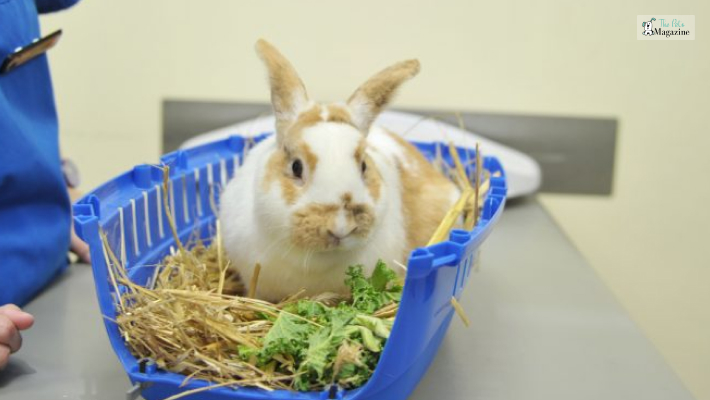
Hay:
Hay should make up around 85% of your rabbit’s diet. Provide your rabbit with an unlimited amount of timothy, oat, or grass hay. Hay is essential for maintaining dental health and gives rabbits something to chew on.
Fresh Vegetables:
Supplement your rabbit’s diet with fresh veggies and limited fruits, about 1-2 cups per 6 lbs of body weight. Leafy greens like romaine, spinach, and kale are nutritious options and should constitute 10% of your rabbit’s daily diet. Root vegetables such as carrots and beets, broccoli, and bell peppers also make great treats.
Pellets:
In addition to hay, you can feed your rabbit a small amount of high-quality pellets, but it should be no more than 5% of your pet bunny’s regular diet. For most adult rabbits, 1/4 to 1/2 cup of pellets per 6 lbs of body weight is sufficient. Pellets provide nutrients that hay may lack, but too many can lead to obesity. Choose a pellet specifically for adult rabbits.
Constant Access to Clean Water:
Fresh, clean water should be available at all times. Change your rabbit’s water daily and provide multiple bowls in case one gets overturned. Lack of water is dangerous for rabbits, so check water levels frequently.
Treats:
Treats should make up no more than 5% of your rabbit’s daily calories. While carrots and fruits like apples, berries, and melons are okay in moderation, avoid sugary treats. Some good treat options include rolled oats, nuts, and unsweetened dried cranberries. Only give 1-2 small treats (about 1 tablespoon) per day.
Following the guidelines mentioned here will ensure your rabbit gets all the nutrients it needs to live a long, healthy life by your side. Be consistent, but also pay attention to your rabbit’s appetite and stool to make sure there are no issues. If you have concerns about your rabbit’s diet or eating habits such as can rabbits eat broccoli, consult an experienced vet.
Final Thoughts
Feeding your rabbit the proper diet is one of the most important things you can do to give them a good life. With timothy hay as the base, some nutritious pellets for balanced nutrition, and a variety of fresh veggies and occasional fruits as treats, your rabbit will be happy, healthy, and hopping around for years to come!
Most of all, spend plenty of time with your bunny each day – play with them, cuddle them, and shower them with love. They rely on you for everything, so you owe it to the little furball to give them the best life possible.
More on The PetsMagazine:






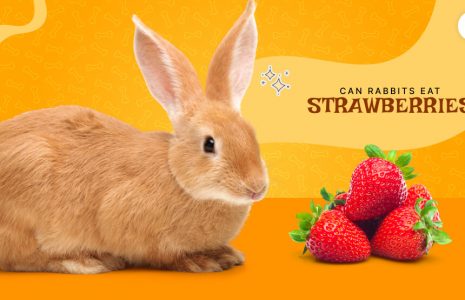
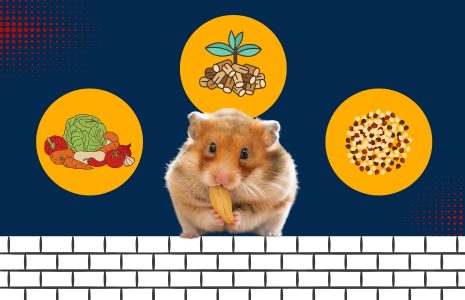
Leave A Comment